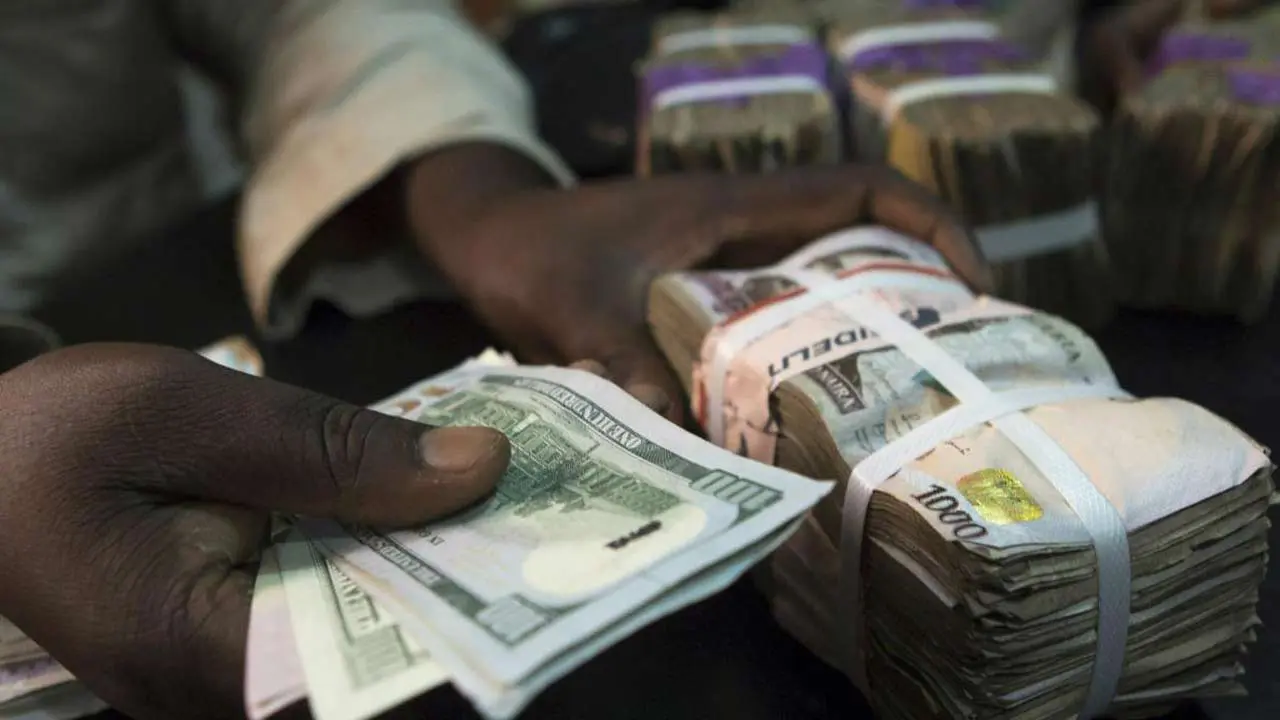The monetary policy committee (MPC) of the Central Bank of Nigeria (CBN) says the volatility in the foreign exchange (FX) market is caused by seasonal demand for forex.
Olayemi Cardoso, CBN’s governor, made this known on Tuesday during the press briefing of the committee’s 295th meeting in Abuja.
“Members further observed the recent volatility in the foreign exchange market attributing this to seasonal demand, a reflection of the interplay between demand and supply freely functioning market system,” Cardoso said.
The naira has been fluctuating at the official and parallel markets, trading below N1,600/$ and above N1,400 per dollar in the last two weeks.
On May 6, the naira traded at N1,430/$ at the parallel section of the FX market but depreciated to N1,450 on May 8.
The local currency continued to decline on May 13, when it traded at N1,520/$ before appreciating to N1,510/$ on May 17.
READ ALSO: Naira appreciates against Dollar, Pound sterling at official, parallel markets
Similarly, in the official window, the local currency declined from N1,354 per dollar to N1,421.06/$. between May 6 to May 8.
Also, the naira depreciated to N1,478.11/$ on May 13 but appreciated to N1,497/$ on May 17.
However, as of May 20, the naira traded at N1,490 per dollar at the parallel market, while the local currency closed at N1,468/$ in the official window.
Speaking further, Cardoso said the committee urged CBN to sustain its focus on accretion to foreign reserves after noting the marginal increase in the external reserve balance between March and April.
According to data obtained from the CBN, foreign reserves rose from $33.76 billion on March 1 to $33.82 billion on March 28 — an increase of 0.19 percent.
READ ALSO: GTBank faces loan restructuring surge amid naira devaluation
However, external reserves fell by 3.91 percent the month after, declining from $33.57 billion on April 2 to $32.25 billion on April 30.
The governor said the committee commended the apex bank for the recent approval of licences of 14 international money transfer operators (IMTOs).
This, he said, is expected to improve competition and lower the cost of transactions, thus, attracting more remittances through formal channels.
Cardoso said the committee urged the CBN management to sustain its regulatory oversight to ensure the continued stability of the banking system following the recent recapitalisation initiative.

 Health5 days ago
Health5 days ago
 Entertainment7 days ago
Entertainment7 days ago
 Crime6 days ago
Crime6 days ago
 Education1 week ago
Education1 week ago
 Health1 week ago
Health1 week ago
 Comments and Issues7 days ago
Comments and Issues7 days ago
 Football7 days ago
Football7 days ago
 Latest6 days ago
Latest6 days ago

